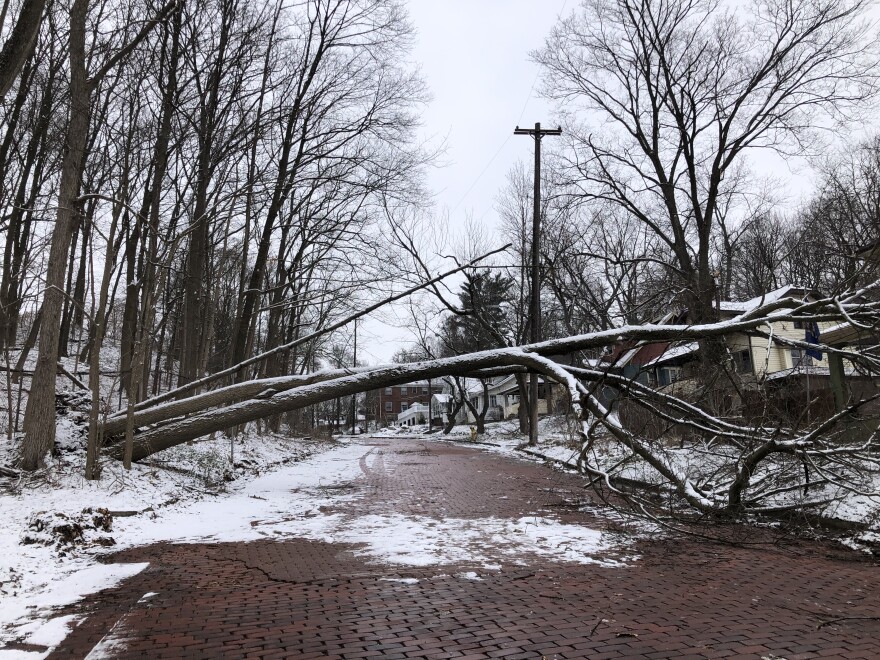Western Michigan University biology professor David Karowe gave a talk Monday night on the impact climate change could have on Kalamazoo.
Karowe said that Kalamazoo is already seeing the effects of climate change, and that climate change has caused an increase in major rain and snow events in the area. He also said Kalamazoo could see an increase in the risk of “false springs” if current levels of emissions continue. A “false spring” occurs when winter temperatures dramatically rise and fall. This can damage or even kill fruit crops like cherries and apples.
“This is one of the unappreciated effects of climate change, and quite honestly, I don’t know anybody else who’s talking about it,” said Karowe.
Karowe said no scientific studies have focused on the specific climate change issues Kalamazoo could face, but Karowe presented climate change predictions for regions that include Kalamazoo based on his own analysis of climate data. He said showing what climate change could look like in our area might help people connect to the issue.
“It means more to people,” said Karowe. “And it also makes it very difficult to think, ‘Okay, this isn’t an issue that matters to me.’ It is an issue, because Kalamazoo is also in a climate emergency, just like the rest of the planet.”
Karowe’s presentation was part of Climate Emergency Month, a series of events organized by WMU’s Climate Change Working Group.


